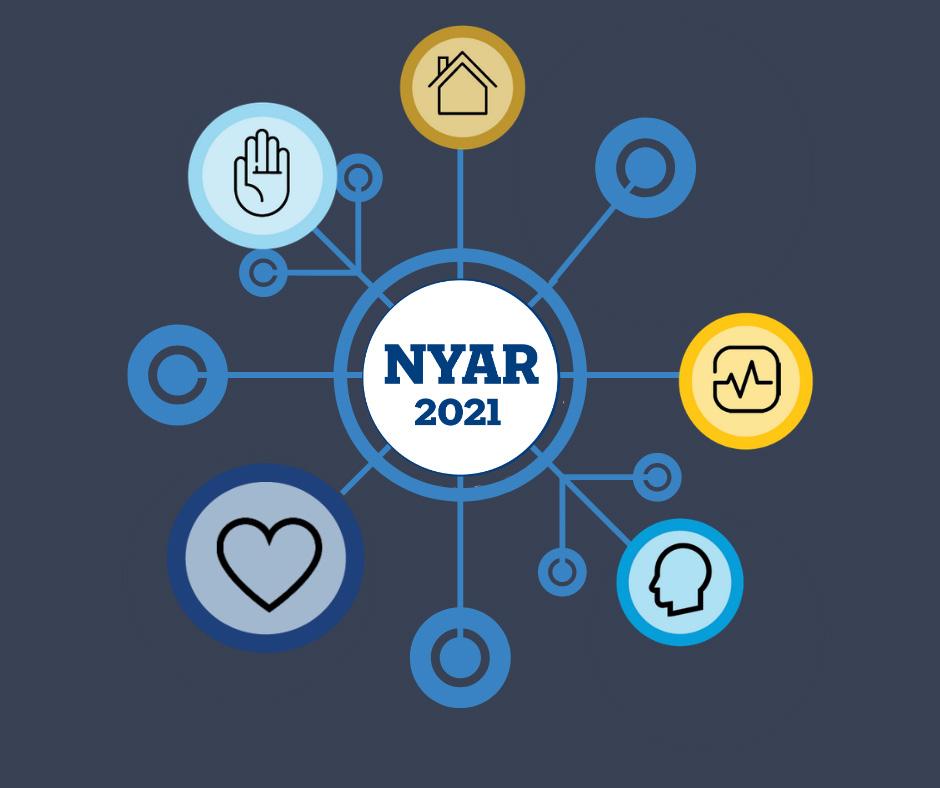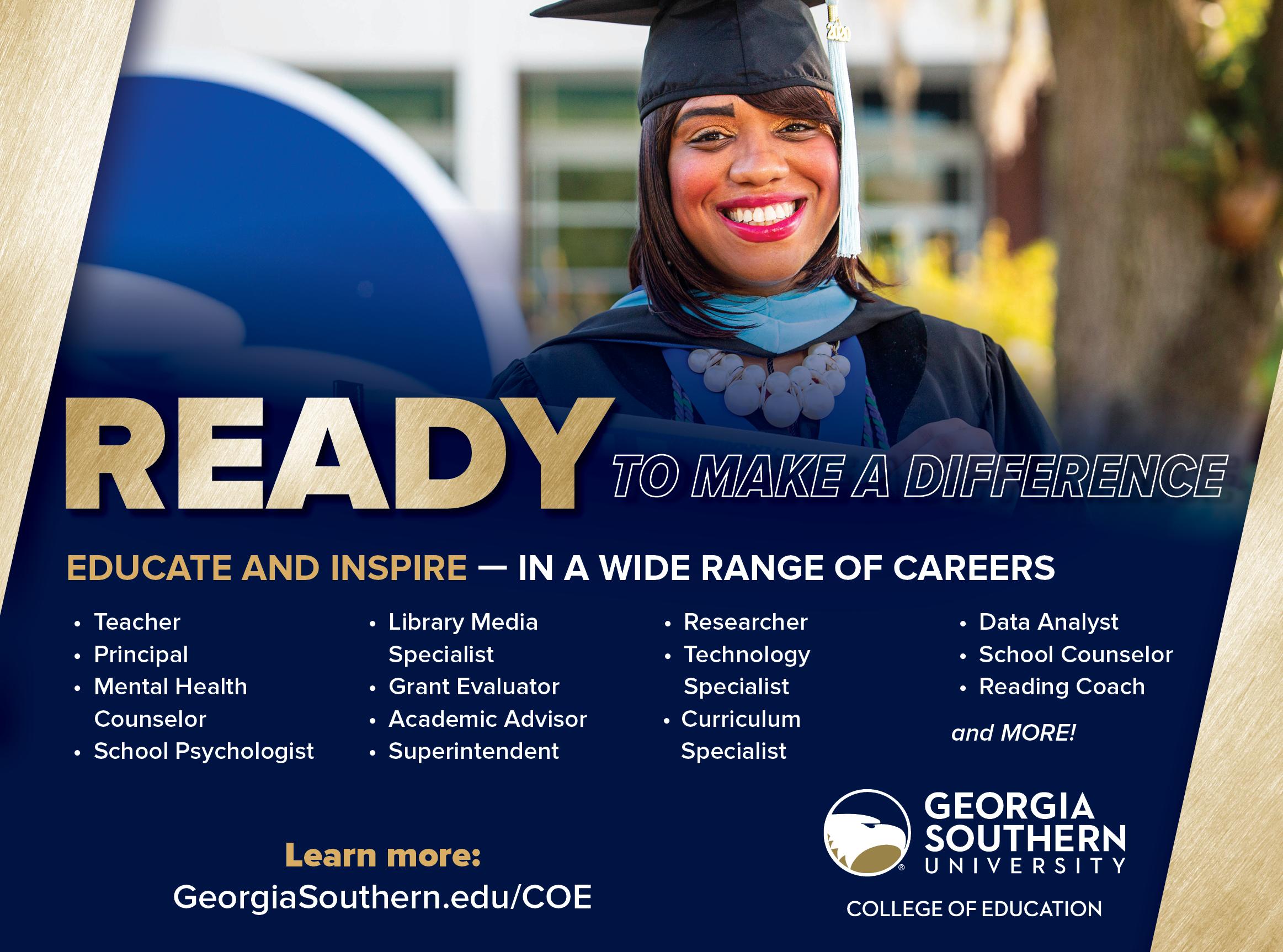
4 minute read
Session Nine
Connecting Families and Continued Learning Through COVID-19
Michael O’Neal, Parent University, Savannah, GA Tameka Tribble, MAT, Parent University, Savannah, GA Gertrude Robinson, Parent University, Savannah, GA Johnnye W. Rogers, Child Care Resource & Referral, Savannah, GA For 20+ years in Savannah, Georgia, Parent University has successfully enhanced the ability of families to create an environment in which learning thrives for both children and parents. When the pandemic closed schools and disrupted normal programming, Parent University immediately pivoted to online programming to continue connecting families with relevant education, resources and support throughout this time of need. The pandemic also exposed a huge gap in technology and education. Therefore, Parent University is working to close that gap with our new Tech College at Parent University.
Mobilizing Rural Communities to Create Systemic Changes to Reduce Health Disparities
Al Parker, PhD, University of Georgia, Athens, GA USG institutions are creating strategies to enhance community capacity in addressing health inequities, “closing the gap” between suggested optimal development models and helping prepare a visioning master plan in rural communities.
The School Wellness Wheel: Re-Configuring Schools to Become Healing and Resiliency Centered Organizations
Michael Ruyle, EdD, Marzano Resources/Solution Tree, Centennial, CO Crystal Green-Braswell, EdS, Little Rock School District, Little Rock, AK Join a lively, engaging, and interactive discussion focused on how the three constructs of mastery-based schooling–trauma competent principles, and culturally responsive teaching–are the vital, foundational pieces for true, substantive evolution in schools. The session will consist of content presentation, real-world examples, group activities, discussion opportunities among participants, and question/answer time with presenters.
11:05 - 11:25 a.m. Session Change • Exhibitor Appointments
11:25 a.m. - 12:25 p.m. Session 9 Breakouts
More Good Days: Brain-Based Learning for Staff and Student Success
Joelle Hood, EdD, Thriving YOUniversity, Murrieta, CA Janeen Antonelli, MEd, Thriving YOUniversity, Yorba Linda, CA Let’s face it, teaching is hard. The struggle is real. Some days, stress is so high for both students and staff, it seems like no-one is ready to engage in learning. Wouldn’t it be great if you could cultivate the climate in your classroom so that both you and students are excited to be there? Are you wondering what you can do to create a culture where students want to learn and behave in a way that makes your classroom primed for connection, engagement, and learning? In this highly engaging session, participants will walk away with key ideas about the neuroscience of belonging and behavior, and research-based strategies to help themselves and students learn how to identify and calm their emotions, focus their attention and strengthen their self-management skills. Additionally, participants will learn that language matters and how the words we use can impact student behavior and achievement. Practicing connection before correction, participants will learn simple yet powerful strategies to be “warm demanders”–educators that offer their students a balance of high expectations and boundaries with warmth, support, and acceptance. Walking out of the session, participants will have tools and strategies to empower both themselves and students to create more good days in the classroom.
Closing Gaps by Opening Spaces: A Conversation on Equity Design in Reimagined Schools
Derrick Butler, EdS, Savannah-Chatham County Public Schools, Savannah, GA While schools worked to reopen their school spaces safely and slowly in the COVID-19 pandemic era, schools were tasked with unequivocally and urgently opening their support spaces to provide access and equitable opportunities for students. Through strategic opening of “spaces,” schools close gaps and equity disparities. Participants will examine the significance of creating a culture of equity spaces, examine the significance of sustaining a culture of equity spaces, and evaluate existing structural capacities that allow for the design of equity spaces in our reimagined virtual and hybrid school spaces.
Leaders Lead: Ending the Failing School Cycle
Hotep, MBA, Hustle University, DeKalb, GA When a school is identified as “failing” a very troubling series of events transpires. These events are consistent: at the district level, among principals, teachers and even parents and students. The impact of this phenomenon is predictable, cyclical, and therefore, only leads to more school failure. Add crisis fatigue due to COVID-19 and racial/social unrest, and schools in low-income, minority communities are even more vulnerable than ever. We have identified and coined this national predicament, “The Failing School Cycle”. This presentation will share 10 years of case-studies with the actual principals who have ended the cycle in their schools.
Using Mindfulness as a Trauma-Informed Approach
Amanda Johns, PhD, LPC-S, NCC, DCC, Nicholls State University, Thibodeaux, LA Kristen Dickens, PhD, LPC, ACS, NCC, Georgia Southern University, Statesboro, GA Syndie Best, BA, Georgia Southern University, Statesboro, GA Trauma exists on a continuum and affects individuals differently at various stages of life. Presenters will discuss the use of mindfulness as a trauma-informed approach when working with child and adolescent clients. Concepts of vicarious trauma and counselor burnout will also be addressed within the context of a mindful practice.
Utilizing Art and Culture to Support the Success Sequence
Kelvin Walston, MA, The Hip Hop Institute, Atlanta, GA Tarita Johnson, MSW, Wholistic Stress Control Institute, Atlanta, GA This presentation will demonstrate how Hip Hop and African American History are used as educational teaching tools in our evidence based program to promote social, emotional, and violence prevention skills. Explorations from the African diaspora, historical trauma, slavery, post traumatic slave syndrome to decoding and deconstructing hip hop elements all intersect to provide the basis of violence prevention, and more profoundly, social and emotional balance.
The Power of Connection: A Therapeutic Approach to Utilizing Technology and Social Media to Build Attachment
Tiffany Monk, LMFT, Cullman County Schools, Cullman, AL Shalandra Whaley, MS, LPC, Cullman County Schools, Cullman, AL This session will explore how technology has become enmeshed in many aspects of daily life and elaborate on how to use technology and social media to foster healthy attachment in the classroom setting. Educators and helping professionals will also learn the safety implications and self-care that must be applied to lessen the negative effects of technology use.




